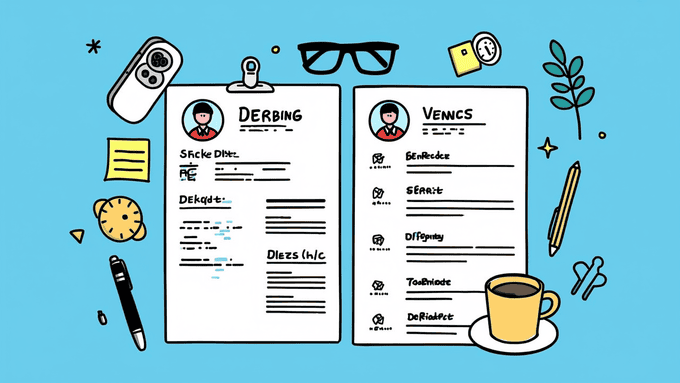Accountant Resume Writing Guide

Formatting an Accountant Resume
When creating an accountant resume, choose the reverse-chronological format, which is the most commonly used and easy to read. This format allows hiring managers to quickly see why you would be a good fit for the position. Other formats include the functional resume, which is best for those with strong skills but limited experience, and the combination resume, which values both skills and work experience.
Using an Accountant Resume Template
A resume template is recommended for accountants to present data in a structured manner, avoiding formatting issues that can arise when creating a resume from scratch.
What to Include in an Accountant Resume
The main sections of an accountant resume should include:
- Work Experience
- Contact Information
- Skills
- Education
Optional sections can include:
- Awards & Certifications
- Languages
- Interests & Hobbies
Contact Information
Ensure your contact information is accurate and includes:
- Full Name
- Title (align with the role you’re applying for)
- Phone Number
- Professional Email Address
- (Optional) Location
Resume Summary or Objective
Recruiters spend a few seconds on each resume, so hook them with a strong introduction: a resume summary for experienced professionals or a resume objective for those new to the field.
Work Experience
List your work experience with the position name, company name, dates, and responsibilities & achievements. Focus on notable achievements to stand out.
Work Experience for Those Without Experience
If you lack work experience, showcase your accounting portfolio. Offer your services on freelance platforms or to friends and acquaintances to build a portfolio.
Action Words
Use powerful action words to make your achievements stand out, such as "Conceptualized," "Determined," "Spearheaded," "Formulated," and "Initiated."
Education
List your education with the degree type & major, university name, years studied, and relevant courses or GPA.
Skills for an Accountant Resume
Highlight both hard skills (e.g., Financial Statements, Payroll, Budgets) and soft skills (e.g., Creative Thinking, Communication, Time-Management) that are relevant to the job description.
Additional Sections
Include additional sections like Awards & Certifications, Languages, and Interests & Hobbies to further differentiate your resume.
Cover Letter
Include a cover letter to separate your application from others. It shows your interest in the company and allows you to explain why you're a good fit for the role.
Cover Letter Structure
A winning cover letter should include:
- Personal Contact Information
- Hiring Manager’s Contact Information
- An Opening Paragraph summarizing your experience and best achievement
- The Body detailing why you want to work for the company, your relevant skills, and past experience
- A Closing Paragraph thanking the hiring manager and suggesting a follow-up conversation
Key Takeaways
To land the accounting role, format your resume correctly, highlight your achievements, and use a convincing cover letter to stand out from the competition.